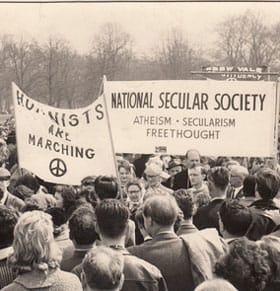
Humanists Are Marching!
National Secular Society members and Humanists protesting on Easter Monday in Hyde Park, c.1970.
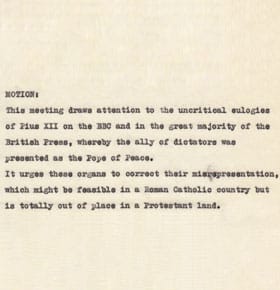
Campaign against the ‘misrepresentation’ of Pius XII, 1958
With the death of Pope Pius XII on 9 October 1958, British news published and broadcast a wave of positive eulogies for the Catholic leader. Celebrated nationally as the ‘Pope of Peace’, the National Secular Society were alarmed by the uncritical reporting of Pius’ leadership.
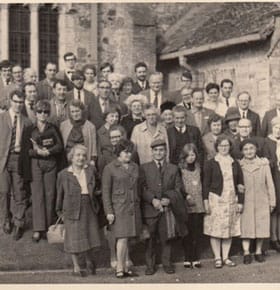
NSS Outing c.1970
This orphaned photograph from a National Secular Society annual outing c.1970 shows the broad appeal of the Society, with men and women of all ages.
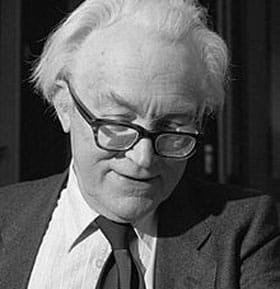
The National Secular Society
As a campaigning organisation, the National Secular Society has a strong tradition of tackling difficult questions and challenging the existing state of affairs.
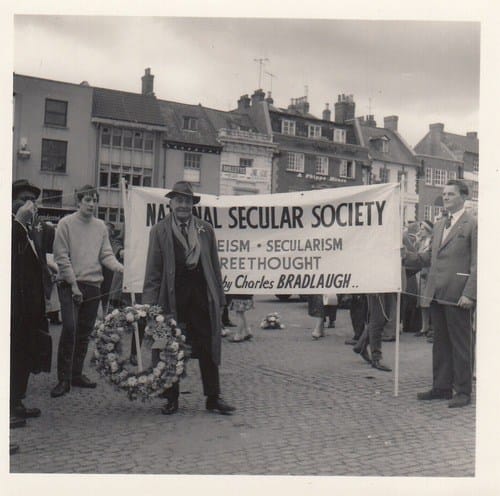
Charles Bradlaugh and the National Secular Society
The National Secular Society was established by the political activist and atheist Charles Bradlaugh in 1886. The Society aimed to promote secularism and argued for a division between church and state.
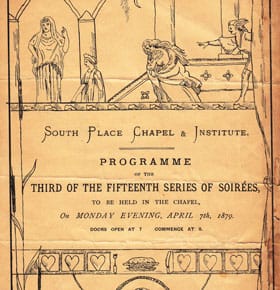
The South Place Chapel and Institute Soiree
The South Place Chapel and Institute Soiree Committee produced some wonderfully playful programmes for their events.
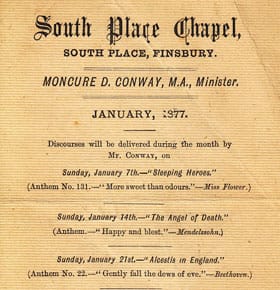
Sunday Lectures at Conway Hall
Conway Hall Ethical Society has been providing an alternative to Sunday services – the Sunday Lectures, since the congregation of South Place Chapel moved away from religion in the nineteenth century.
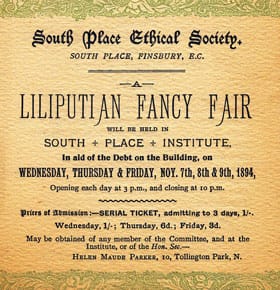
Late Victorian advertisements for events held by South Place Ethical Society
Late Victorian advertisements for events held by South Place Ethical Society, South Place Chapel, (1894-1903). Including rambles, bazaars and book sales.
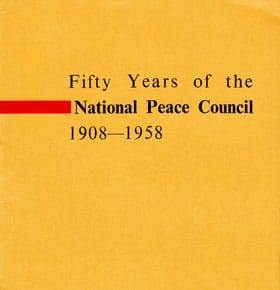
Conway Hall Ethical Society has a history of supporting other groups who share some of the ethical or social principles of the Society
The members of Conway Hall Ethical Society have a long history of supporting other groups who share some of the ethical or social principles of the Society. This was especially so under the Chairmanship of Peter Cadogan, (1971-1980). During this time the Society created links with a range of campaign and social groups from nuclear disarmament to child poverty.